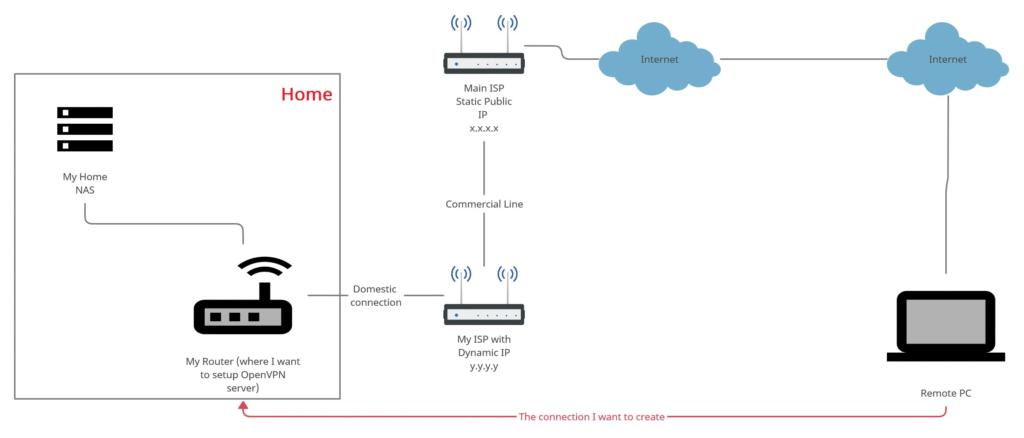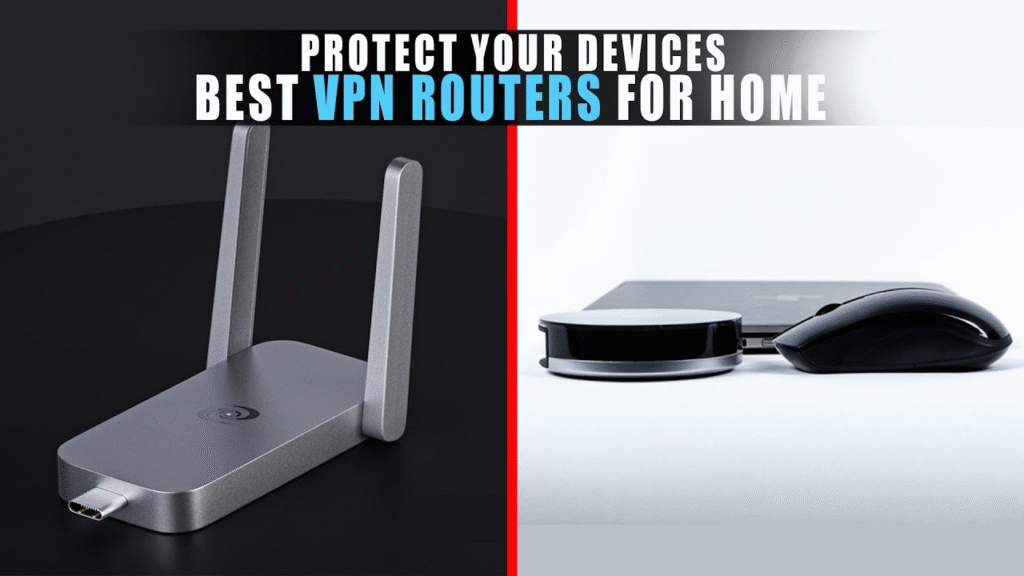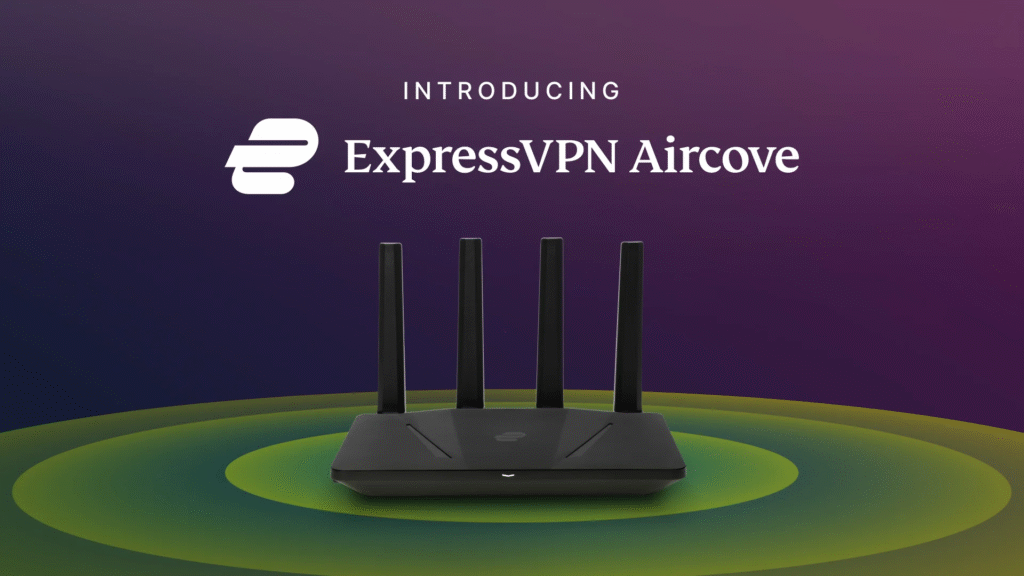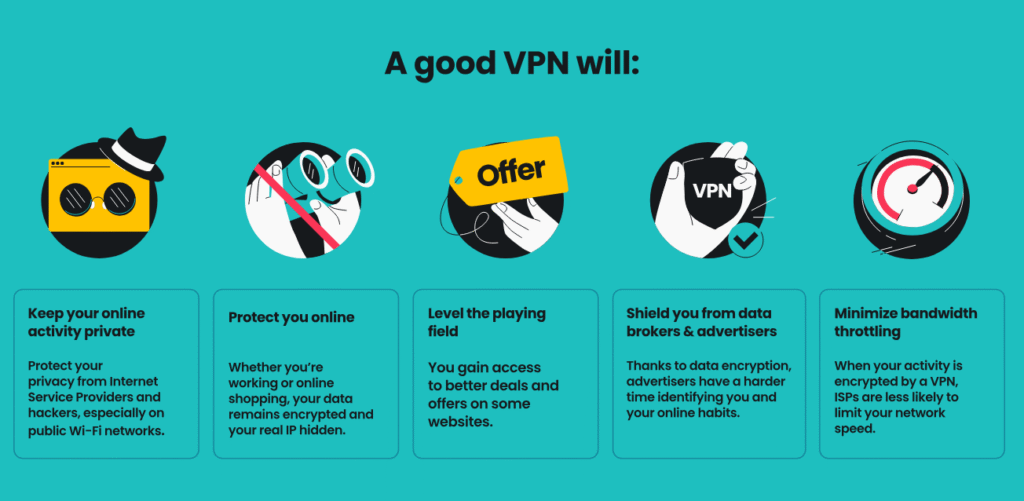Whether you’re protecting your smart TV, phone, gaming console, or IoT device — installing a VPN on your router is one of the smartest moves you can make for network-wide privacy and security. But what is a router VPN, and how do you choose the right one?
In this in-depth guide from VPN AdWiser, you’ll learn everything you need to know about VPNs for routers, from benefits and installation steps to the best VPN services that support router setups.
Table of Contents
- What is a Router VPN?
- Why Use a VPN on Your Router?
- Best VPNs for Routers (Top Picks)
- How to Install a VPN on Your Router (Step-by-Step)
- Pre-configured VPN Routers vs Manual Setup
- Compatible Routers and Firmware (DD-WRT, OpenWRT, etc.)
- Pros and Cons of Using a VPN on a Router
- Key Features to Look For in a VPN for Routers
- Use Cases: Who Should Use Router VPNs?
- [IMAGE & VIDEO Placeholders]
- FAQs
- Conclusion
- CTA
What is a Router VPN?
A router VPN is a virtual private network that is configured directly on your Wi-Fi router instead of individual devices. Once installed, all internet traffic that passes through that router gets encrypted and routed through a secure VPN server — automatically.
This means you don’t have to install a VPN on every single device. Instead, your entire network is protected 24/7.

Why Use a VPN on Your Router?
Here are the top reasons users choose to use VPNs directly on routers:
🔐 1. Always-On Protection
No need to remember to turn on your VPN. Every device connected to your Wi-Fi is protected automatically.
📱 2. Protect Devices Without Native VPN Support
Smart TVs, gaming consoles, security cameras — these typically don’t support VPN apps, but they’ll still be covered if your router is VPN-enabled.
🌐 Unlimited Simultaneous Connections
VPN apps usually limit how many devices you can use. A router VPN bypasses that, covering everything under your Wi-Fi.
💻 Ideal for Remote Workers or Families
One setup secures the whole household, making it a great solution for busy homes or small businesses.
Best VPNs for Routers (2025 Picks)
Here are the top VPN services that work seamlessly with routers:
1. ExpressVPN
- Pre-configured routers available
- Custom router firmware
- Fast speeds and top-notch encryption
- Kill switch and split tunneling support
- Great for beginners and pros alike
2. NordVPN
- Supports OpenVPN, IKEv2 protocols
- Compatible with DD-WRT, AsusWRT, and more
- Threat Protection features
- Advanced features like Meshnet
3. Surfshark
- Unlimited devices
- Compatible with most firmware types
- Affordable and high-speed
- CleanWeb (ad & tracker blocker)
4. CyberGhost
- Easy setup guides
- Excellent streaming support
- Affordable long-term plans
5. Private Internet Access (PIA)
- Strong privacy features
- Highly configurable
- Open-source transparency

How to Install a VPN on Your Router (Step-by-Step)
Step 1: Choose a Compatible Router
Make sure your router supports firmware like DD-WRT, Tomato, OpenWRT, or is a model like AsusWRT that supports VPN setup out of the box.
Step 2: Subscribe to a VPN Service
We recommend ExpressVPN, NordVPN, or Surfshark for router support.
Step 3: Flash Custom Firmware (If Needed)
If your router doesn’t support VPN natively, you’ll need to flash it with compatible firmware. Be cautious — incorrect flashing can brick your device.
Step 4: Log In to Router Admin Panel
Usually accessed via 192.168.1.1 or 192.168.0.1.
Step 5: Enter VPN Configuration
Use OpenVPN or L2TP configuration files provided by your VPN provider.
Step 6: Save and Connect
Once connected, all your network traffic is encrypted automatically.
Pre-configured VPN Routers vs Manual Setup
🔄 Pre-configured VPN Routers
- Plug-and-play
- No manual setup
- More expensive
- Sold by providers like ExpressVPN and FlashRouters
⚙️ Manual VPN Setup
- More affordable
- Technical knowledge required
- Full customization

Compatible Routers and Firmware
Here are popular router models that support VPN:
✅ VPN-Compatible Routers:
- Asus RT-AC86U
- Linksys WRT3200ACM
- Netgear R7000
- TP-Link Archer AX20
🔧 Popular Firmware:
- DD-WRT: Powerful and flexible
- Tomato: Great user interface
- OpenWRT: Advanced users
- AsusWRT-Merlin: Easy and powerful
Pros and Cons of Using a VPN on a Router
✅ Pros:
- Always-on encryption
- Protect all devices
- Great for families and smart homes
- Bypass device limits
❌ Cons:
- May slow down speeds slightly
- Difficult to change servers frequently
- Setup requires technical know-how
- Some routers are not VPN-compatible

Key Features to Look For in a VPN for Routers
When choosing the best VPN for routers, look for:
- Router compatibility
- Fast speeds & reliable uptime
- Strong encryption (AES-256)
- Multiple VPN protocol support (OpenVPN, WireGuard)
- 24/7 support and tutorials
- No-logs policy
Use Cases: Who Should Use Router VPNs?
- Remote workers needing network-wide encryption
- Gamers and streamers looking to bypass throttling
- Families with many devices
- Tech enthusiasts who want hands-off VPN automation
- Small businesses needing always-on data security
FAQs About VPNs for Routers
1. Can any router be used with a VPN?
No. You need a router that supports VPN protocols or allows flashing custom firmware like DD-WRT or OpenWRT.
2. Will a VPN slow down my internet?
Yes, but slightly. Premium VPNs like ExpressVPN and NordVPN minimize speed loss with optimized servers.
3. Is using a router VPN legal?
Yes, VPNs are legal in most countries. However, check local laws if you’re unsure.
4. Can I use a free VPN on my router?
It’s not recommended. Most free VPNs don’t support routers and come with privacy risks or speed limits.
5. Can I use VPN on both router and devices?
Yes, but it’s usually not necessary. If you want to use different locations per device, then install VPN apps separately.
Conclusion: Is a Router VPN Worth It?
If you’re serious about online privacy, convenience, and securing all your connected devices, using a VPN on your router is one of the smartest investments you can make.
It’s ideal for:
- Families
- Remote workers
- IoT-heavy homes
- Streamers and gamers
While setup can be technical at first, the long-term benefits — constant protection and effortless encryption — are well worth it.


